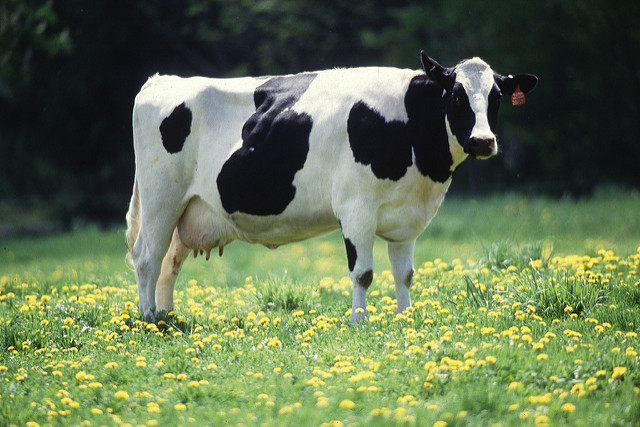Like this article? rabble is reader-supported journalism. Chip in to keep stories like these coming.
Milk is shaping up to be an obstacle to the ratification of the Trans-Pacific Partnership (TPP) in the United States.
The TPP would open some of Canada’s dairy market to imports from the U.S., but less than what had been demanded by American dairy farmers. Last year, the Globe and Mail reported:
“Lawmakers from major dairy-producing states, such as Wisconsin and New York, are unhappy that Canada is opening just 3.25 per cent of its market to duty-free imports. They had wanted more new access in Canada and Japan than they would lose to New Zealand and Australian imports at home.”
Today, the newspaper reports:
“The U.S. dairy industry has been grumbling in Washington about persistent efforts by Canada’s dairy industry — with Ottawa’s help — to shore up the massive tariff wall (up to 270 per cent) that protects the domestic market from foreign competition.”
American dairy farmers are now also upset that Canadian dairy farmers are trying to undercut their concentrated milk protein exports that enter Canada duty-free.
The Globe and Mail notes:
“Protein imports reached nearly $200-million this year, displacing at least 10 per cent of Canada’s milk supply in the making of cheese, yogurt and ice cream. Much of that milk comes from dairies in New York State. …So starting April 1, dairy farmers in Ontario dropped the price of industrial milk by creating a new ‘milk class’ for dairy ingredients. The aim is to undercut the price of imported U.S. milk protein and entice Canadian dairies, such as Gay Lea Foods and Parmalat, to make these ingredients themselves, rather than import them from the United States.”
The newspaper highlights, “The problem — as the Dairy Farmers of Ontario readily acknowledge — is that the new pricing scheme may be an illegal subsidy.”
Then it notes:
“The U.S. milk lobby wants Congress to ratify the TPP. But support hinges on the U.S. government being vigilant about preserving and expanding access to key markets, such as Canada. …Canadian dairy farmers are already in line to be fully compensated for any revenue they lose because of recent trade agreements. The Americans might well see additional protectionist measures [such as the concentrated milk protein pricing scheme] in Canada as unfair double-dipping. Stephen Harper’s Conservative government pledged to pay out $4.3-billion over 10 years to the supply-managed dairy, chicken and egg sectors.”
That said, the Trudeau government has not confirmed it will proceed with the compensation promised by the Harper government.
In November 2015, federal trade minister Chrystia Freeland stated: “We appreciate the importance of compensation to affected sectors [but] it would be very inappropriate for us to commit to specific packages given that we’re actually reviewing the agreement overall.” And last week, CBC reported:
“[Parliamentary secretary to the trade minister David] Lametti said the government realizes opening 3.25 per cent of the Canadian dairy market to foreign competitors will have a negative impact on local farmers. ‘If we decide to ratify we’ll have to sit down with dairy and poultry and turkey and the other supply-managed industries and look at some form of compensation for a transition,’ Lametti said.”
Given the U.S. sees Ontario farmers dropping the price of industrial milk as a protectionist measure, they might well view our demand for “BGH-free” labelling in Canada as a barrier too.
In Canada, it is illegal to administer Bovine Growth Hormone (BGH or rBST) to dairy cows to increase their milk production, but it’s allowed in the United States. The Canadian government has no plans to label or separate BGH-tainted milk entering Canada. In fact, Global Affairs Canada has stated:
“With regards to bovine growth hormone (rBST), Health Canada has determined, in 1999, that rBST does not pose a health risk to humans. There is no scientific basis for restricting trade in milk or dairy products from trading partners that have approved rBST.”
The TPP faces a rocky road to ratification in the United States. Presidential front-runners Donald Trump, Hillary Clinton and Bernie Sanders have all expressed their opposition to the TPP. And Globe and Mail columnist Barrie McKenna wrote last year, “A swing of just a handful of votes [in the U.S. Congress] could torpedo ratification.”
In order for the TPP to be implemented, both the United States Congress and the Japanese government must ratify the deal. So American opposition to the TPP is vital in the struggle to defeat the TPP. The Council of Canadians will continue to work with its U.S. allies to defeat the TPP.
Photo: Kabsik Park/flickr
Like this article? rabble is reader-supported journalism. Chip in to keep stories like these coming.




